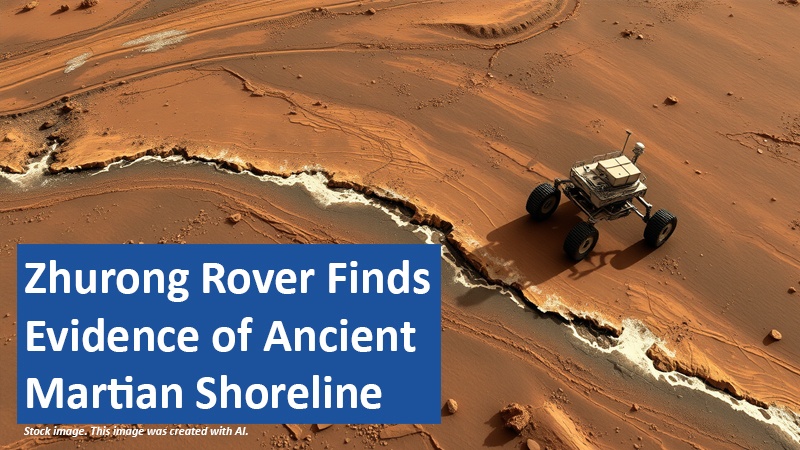China’s Zhurong rover has uncovered intriguing signs of a prehistoric coastline on Mars. The geological features suggest that the Utopia Planitia region may have been covered by an ancient ocean. This discovery raises new questions about Mars’ history and its potential for hosting life.
By August Roberts
Advanced Instruments Reveal Martian Secrets

Since landing in May 2021, the Zhurong rover has used cutting-edge tools to study the Martian surface and subsurface. Its ground-penetrating radar probes as deep as 328 feet, uncovering possible layers of water ice. A multispectral camera analyzes minerals, while high-resolution imaging tools map the planet’s topography. These instruments identified features such as craters, sediment channels, and mud-like formations that bear similarities to Earth’s ancient shorelines.
A Glimpse Into Mars’ Watery Past
The suspected shoreline dates back to the Hesperian period, approximately 3.7 billion years ago. Scientists hypothesize that a vast, silt-filled ocean once covered Mars’ northern plains. Over time, the water likely froze and eventually disappeared, leaving behind sedimentary layers as evidence. These formations provide valuable insights into the planet’s climate history and its potential to support life in the distant past.
Scientific Debate Over Erosion
Not all researchers agree with the ocean theory. Skeptics argue that billions of years of erosion would have erased such delicate geological features. However, some experts propose that asteroid impacts may have resurfaced and preserved parts of these shorelines. Zhurong’s findings add fuel to the ongoing debate, offering both support and challenges to current hypotheses about Mars’ history.
Implications for Future Exploration
If Mars once had a vast ocean, it may have offered conditions suitable for life billions of years ago. Analyzing fossilized shorelines could yield clues about ancient microbial life or chemical signatures. Upcoming missions, such as China’s Tianwen-3 and NASA’s sample return projects, aim to gather more evidence by bringing Martian samples back to Earth. These efforts may revolutionize our understanding of the Red Planet and its potential habitability.
Zhurong’s discovery marks a significant step in uncovering Mars’ secrets and reshaping our understanding of its history.
Based on information from www.dailygalaxy.com and own research.